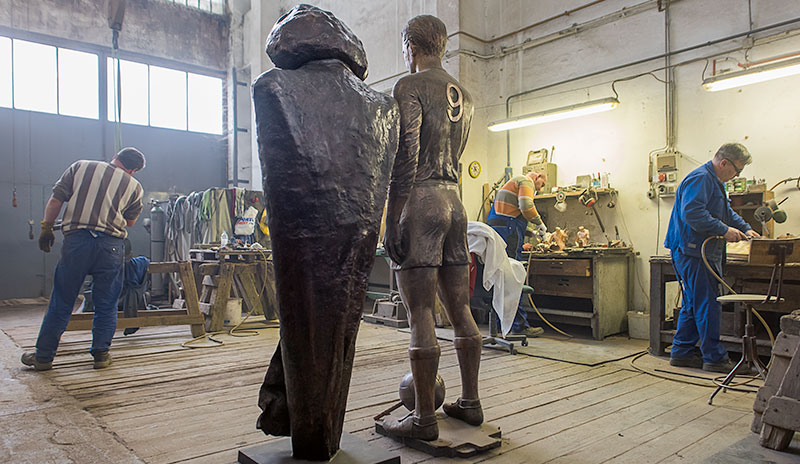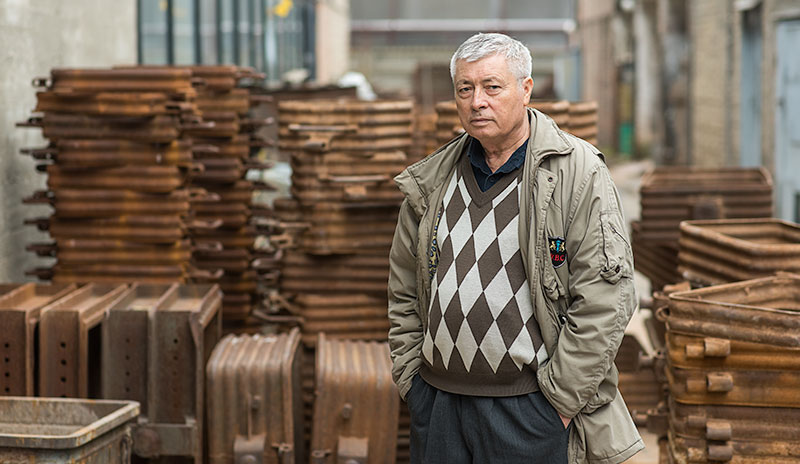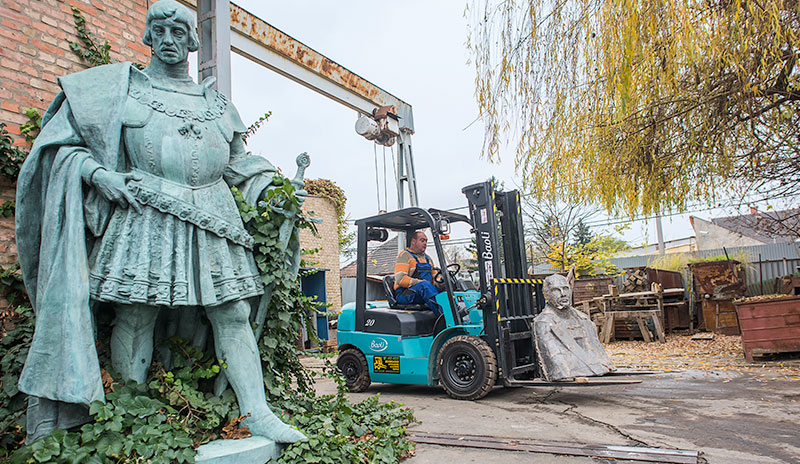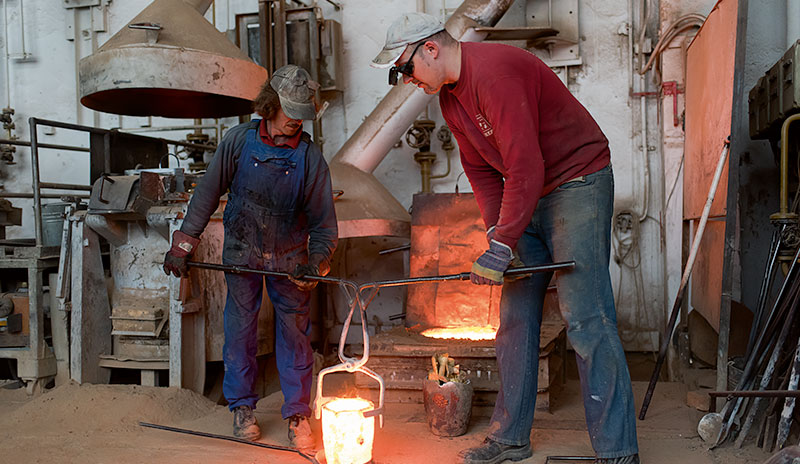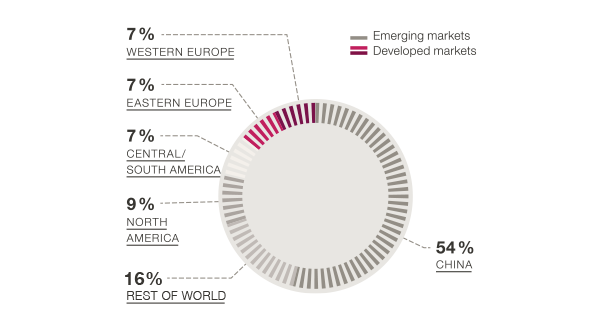Efficient.
The KION Group offers the right product for every application and for every region, including growth markets such as eastern Europe. Highly robust, affordable and efficient trucks – like the ones offered by Baoli – are particularly popular here. And that is something that foundry owner József Szabó in Budapest appreciates.
The KION Group offers
the right product for every
application and for every region,
including growth markets such as
eastern Europe. Highly robust,
affordable and efficient trucks –
like the ones offered by Baoli –
are particularly popular here.
And that is something that
foundry owner József Szabó
in Budapest appreciates.
The bitter November cold permeates the plant in eastern Budapest; even the furnace in the centre of the hall does little to counteract the freezing conditions. Using a large pair of tongs, two employees remove a crucible of molten copper from the flames, before carefully pouring the metal into casting units on the dusty floor. It sizzles and sparks fly.
Statues of all shapes and sizes can be seen standing, sitting and lying on shelves and tables – people, oxen, giraffes and garden gnomes. Hungarian soccer star Ferenc Szusza glistens in bronze in a corner. He will soon have pride of place outside Budapest football stadium. “But he is not quite finished,” says József Szabó with a laugh.
It started as a childhood’s dream
Casting art – that was the childhood dream of Szabó, managing director of the Szabó Öntészeti Foundry. After university, he gained experience at various workshops before achieving his ultimate ambition of having his own foundry, more than over two decades ago. Later, Szabó purchased the Evig Foundry, which since 1997 has been called Szabó Öntészeti Foundry. Originally it was set up for mass production. In 2007, Szabó sold a large part of the company site to concentrate fully on casting works of art.
With success: the Hungarian has made a name for himself all over Europe. “I not only receive orders from artists in Hungary, but also from Germany, France and Austria. Over the years, I have built up a good network of artists who trust my team to realise their visions.”
Szabó’s small team of workers have developed a wonderful understanding. Producing statues requires precision and craftsmanship. “Each and every one of my 20 employees has artistic talent,” says Szabó. “My customers know that their project is in good hands. We don’t produce the works of art in series. Sometimes, we produce medals in greater numbers, but almost every sculpture, whether large or small, is unique.”
Baoli forklifts get the job done swiftly
In the workshop, an employee is removing a huge bust from its mould with an ear-piercingly loud hammer drill, creating a swirling cloud of dust. A door opens and a forklift truck rolls in. The Baoli diesel truck drives up to the statue, picks it up on its forks, turns and leaves the hall. “You could, of course, carry some statues from A to B by hand,” says József Szabó, “but that would require several employees and I need their manpower elsewhere. And that’s why our truck is in use every day.”
Trucks bearing the Chinese brand Baoli, part of the KION Group since 2009, were mainly used in China to start with. Now, almost 40 per cent of the economy-level trucks are exported, with eastern European countries such as Hungary being one of the target markets. As a result, Baoli has become the third global brand company in the KION Group. While Linde and STILL serve the premium markets, Baoli trucks are renowned for offering good quality at affordable prices.
And that is something that József Szabó appreciates. “The Baoli truck is ideal for our needs. It transports eight tonnes of goods around our site every day.
Without it, we wouldn’t be able to fulfil our customers’ orders so quickly and continue to build on our good reputation.”
When artists commission Szabó Öntészeti to produce a statue, they usually come to Budapest in person and bring a plaster model. It usually takes just one to two weeks until the work is finished, depending on the size and complexity of the order. “We have a reputation for working quickly and with care. Another reason why artists from all over Europe come to us in Budapest.”
You don’t have to visit the small workshop in the eastern part of the Hungarian capital to admire the talents of József Szabó. The restoration of the statues on Heroes’ Square in Budapest is his work. Is that something he is proud of? “Not overly,” he says, shrugging his shoulders. “The way I see it, there aren’t any important and unimportant pieces – every statue has its own unique story.”

